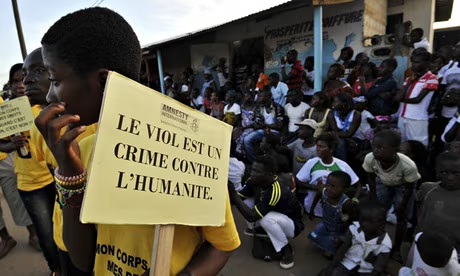Statement by Plan International and IHRDA in response to the report presented by the Special Rapporteur on the Rights of Women in Africa
(Agenda Item 8): The rights of the Girl Child. 46th Ordinary Session – 11th- 25th November 2009, Banjul, The Gambia
Plan International and IHRDA welcome the Special Rapporteur on the Rights of Women in Africa’s report and her reference to children, especially to the girl child’s situation on the continent. It is on this particular point that we are intervening, in full knowledge that the Protocol to the African Charter on Human and Peoples’ Rights on the Rights of Women in Africa (the Maputo Protocol) protects the girl child as much as the adult woman.
Over recent years, the world community has begun to open its eyes to the situation of girls in our societies.1 The Protocol to the African Charter on Human and Peoples’ Rights on the Rights of Women in Africa and the Call for Accelerated Action for an Africa Fit for Children give explicit attention to the girl child and commitments were made to girls and young women in the African Youth Charter.
This year, the world is celebrating the 20th anniversary of the adoption of the United Nations Convention on the Rights of the Child (UN CRC), the 10th anniversary of the entry into force of the African Charter on the Rights and Welfare of the Child (ACRWC), the 20th anniversary of the adoption of the Convention on the Elimination of All Forms of Discrimination against Women (CEDAW). Additional important commemorations will be marked next year, such as the 5th anniversary of the entry into force of the Maputo Protocol and the 15th anniversary of the Beijing Declaration and Platform for Action.
However, despite these legal and political frameworks protecting the girl child as a young woman and as a child, girls throughout the world are still subjected to discrimination and violence. Girls and women suffer gender-based discrimination stemming from socially-constructed gender roles, and social and cultural norms sometimes sanctioned by customary law.
The African Charter on the Rights and Welfare of the Child is very clear in that customs, traditions, cultural and religious practices may not be used as excuses for violating the rights of children as enshrined in the Charter. The Protocol on the Rights of Women in Africa further obliges States Parties to prohibit and condemn all forms of harmful practices which have a negative effect on women’s human rights.
Harmful practices have a significant impact on girls’ economic empowerment. One of these is early marriage, which threatens the child’s right to survival and development – and by extension right to economic participation. Early marriage and early motherhood can severely curtail educational and employment opportunities and are likely to have a long-term adverse impact on their and their children’s quality of life and marginalisation from society. The current global economic crisis threatens to further slow down many of Africa’s recent gains in child survival and well-being particularly those related to girls.2[1]
Consequently, Plan International and IHRDA recommend that the African Commission on Human and Peoples’ Rights call upon State Parties to the African Charter:
- To take active steps to end discrimination and violence against the girl child in particular and women in general;
- To undertake and implement measures to end harmful customs, traditions, religious and cultural practices that violate the rights of the girl child and women in Africa.
Plan International and IHRDA:
- Request the Special Rapporteur for Women to work in collaboration with the Focal person from the African Committee of Experts to define strategies and guidelines to guide member states in the work with the Girl Child.
Plan International and IHRDA call upon the Member States of the African Union who have not as yet ratified the Protocol to the African Charter on Human and Peoples’ Rights on the Rights of Women in Africa and the African Charter on the Rights and Welfare of the Child:
- To invest in early childhood care and development opportunities for all children particularly the girl child;
- To intensify their efforts to improve the quality of girl child education and to ensure that all children, particularly the girl child, have access to high quality post primary education;
- To invest in schemes that ensure girls are equipped with market-relevant skills and get access to savings and loan opportunities;
- To invest in sexual and reproductive health services for young girls, including access to adequate information, but most importantly structures and programmes empowering girls to fully enjoy their protection and sexual health rights.





